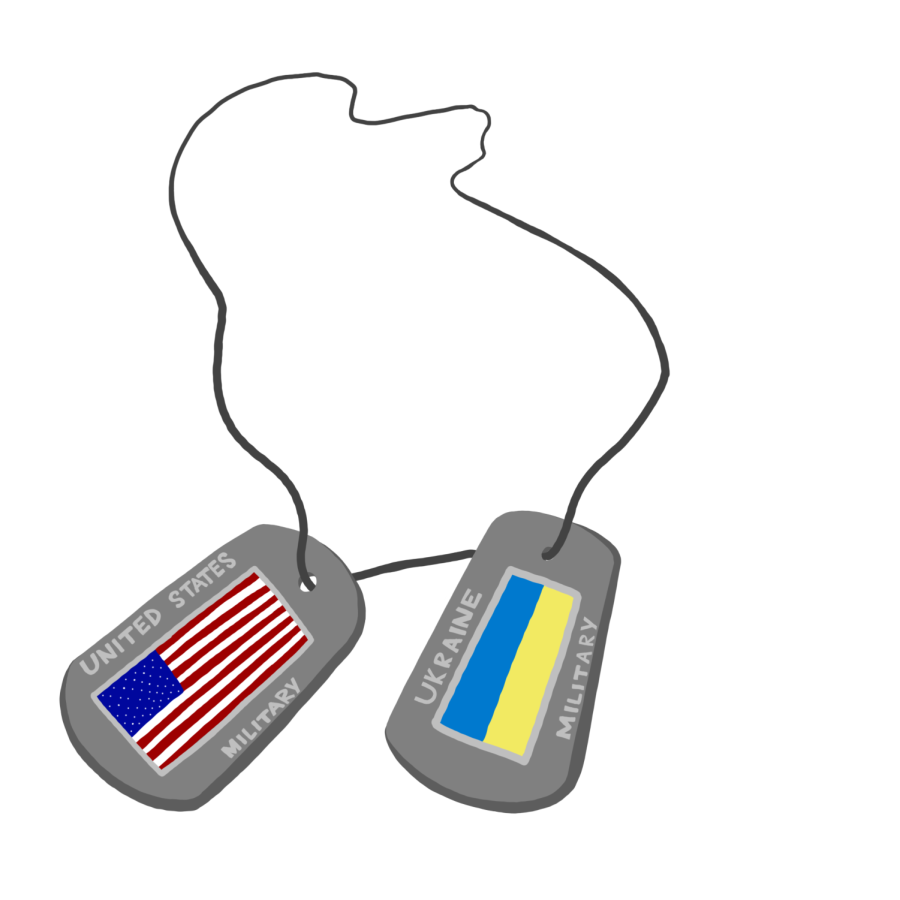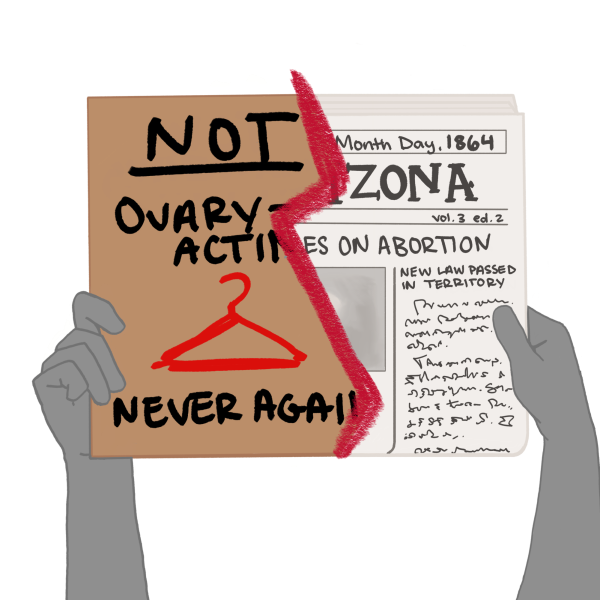Strengthen peace, not defenses
April 5, 2022
Should the U.S. strengthen its military hold in Ukraine? Absolutely not.
It is a tale as old as time. It is the story of the underdog, the doctor and his creation, the beauty and the beast. They are the stories of American foreign policy, and they have been told in countless countries around the world — Afghanistan, Iraq, Iran, Nicaragua, Guatemala and Argentina, just to name a few — and now we are witnessing what sounds eerily similar to the opening lines of the next “great” American success story in Ukraine.
Right now the story reads a bit like “The Underdog” — news narratives emphasize the Ukrainian fighting spirit, the horrors inflicted upon them and how they have defied the odds with their defensive capabilities. These narratives are not entirely untrue. Ukraine is the underdog. Ukraine is facing the unimaginable horrors of war. Ukraine has defied all odds. Ukrainians have a strong fighting spirit. It begs the questions: Why not support them? Why not go all the way with military aid?
The problem does not lie in whether we believe Ukraine’s cause is just — we know it is — the problem lies in choosing the best way to support their effort without putting them through the same cycles of abuse we have put countless other nations through. This specific underdog story has already been told at the expense of most of the Middle East. The Mujahideen were the underdogs during the Soviet invasion of Afghanistan, the United States funded and supplied them in Operation Cyclone, which ran from 1979 to 1993, and provided upwards of $600 million per year in direct military support to the group. This supplied weapons and training that would later be used by Al-Qaeda against the U.S. in Iraq and other Middle-Eastern conflicts.
As disheartening as it is, a consistent thread remains in the story of American foreign policy. We have a distinct history as financiers of dangerous, often extremist, military organizations around the world, which has led to decades of conflict and destabilization in the affected regions. Increasing our military hold in Ukraine would undoubtedly result in a similar outcome. Russian disinformation about Ukraine’s “Nazi problem,” while mostly unfounded, has some footing in reality. The Azov battalion is a small regiment within the Ukrainian Army that does, explicitly, have Neo-Nazi ties. The existence of this battalion in no way, shape or form justifies any of Vladimir Putin’s actions. However, the existence of a right-wing extremist militia with funding from the highest levels of government, both domestically and abroad, should be a real concern. What Ukrainian citizens need most right now is peace.
A few weeks ago, I wrote that wars only end with a concession or with death. Sending excessive amounts of military support, especially from the U.S., would send a clear message to Russia and Putin that we are willing to end the war with death and destruction. As we have seen so far, Putin is more than willing to commit extreme acts of violence to prevent Ukraine from joining NATO. More military aid to Ukraine would only escalate the war, not end it. This conflict is happening within a worrisome convergence of all too familiar events. What the world needs right now is not a paternalistic police force to whip the Russians into shape. What the world needs instead, are responsible adults who will recognize the immense human toll of war and do all that they can to avoid it.
As Americans, we are well aware that money makes the world go around. The best course of action is to continue to ensure that Russian oligarchs see diminishing returns on their investments in Putin’s war. Economic impact plus a willingness to negotiate is what will stop Putin. He obviously does not care about the human cost, so what would more warfare do? We are sending enough military support as is. There are plenty of other ways to hit Russia’s economy that don’t involve out-spending them with military aid. We have tried that in the past. It does not work.












